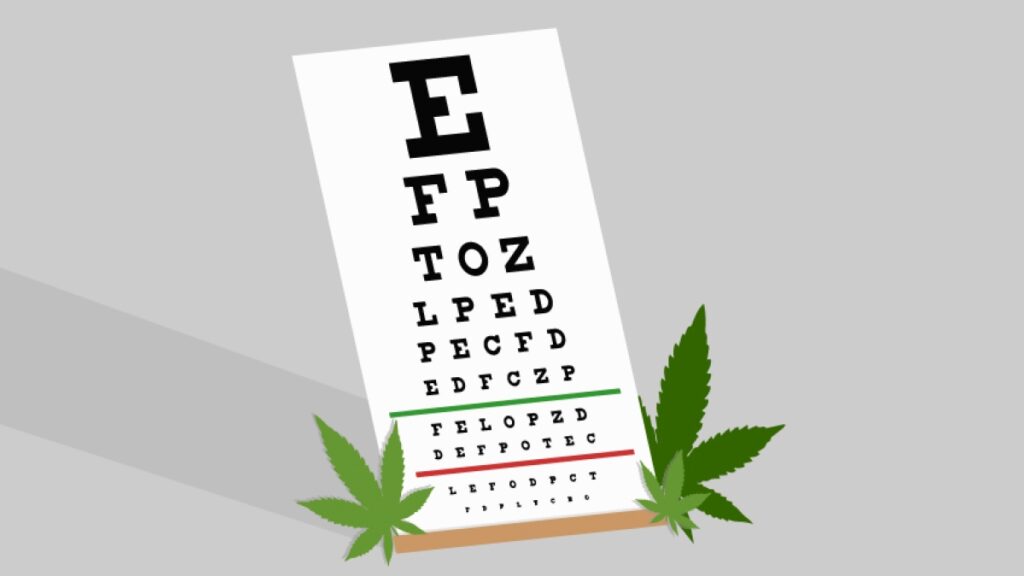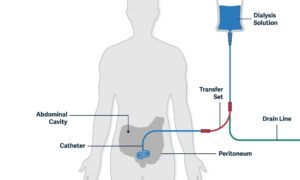Medical cannabis has been a topic of increasing interest and research in recent years. As more states and countries legalize its use for both recreational and medicinal purposes, it’s essential to understand the potential therapeutic benefits of this natural substance.
The Endocannabinoid System ─ A Brief Overview
Before diving into the specific conditions that medical cannabis from WeGROW can help treat, it’s crucial to understand the endocannabinoid system (ECS). The ECS is a complex cell-signaling system found in humans and other mammals, responsible for maintaining homeostasis or balance within the body.
The system is composed of endocannabinoids, receptors (CB1 and CB2), and enzymes that regulate a wide range of physiological processes, including pain, inflammation, mood, and sleep.
Cannabinoids found in cannabis, such as tetrahydrocannabinol (THC) and cannabidiol (CBD), interact with the ECS, resulting in various therapeutic effects. THC, the psychoactive compound in marijuana, binds primarily to CB1 receptors in the brain, causing the “high” associated with marijuana use.
CBD, on the other hand, is non-psychoactive and has a more complex interaction with the ECS, influencing both CB1 and CB2 receptors and modulating the effects of THC.
Chronic Pain Management

Source: medicalnewstoday.com
Chronic pain is one of the most common reasons patients seek medical cannabis as a treatment option. Various studies have shown that marijuana can provide significant relief for those suffering from chronic pain, including neuropathic pain, fibromyalgia, and arthritis.
The anti-inflammatory properties of cannabinoids, particularly CBD, contribute to reducing pain and inflammation in affected areas.
Medical Marijuana and Multiple Sclerosis (MS)
Multiple sclerosis (MS) is a chronic neurological disorder characterized by damage to the protective covering of nerve fibers in the brain and spinal cord. This damage disrupts communication between the brain and the body, leading to a wide range of symptoms, including muscle stiffness, spasms, and pain.
Medical cannabis has shown promise in alleviating these symptoms, improving mobility, and reducing the frequency and intensity of muscle spasms in MS patients.
Treating Epilepsy and Seizure Disorders
Epilepsy is a neurological condition characterized by recurrent seizures, which can range from brief episodes of staring to full-body convulsions. Medical cannabis, particularly CBD, has gained significant attention as a potential treatment for epilepsy.
In June 2018, the US Food and Drug Administration (FDA) approved Epidiolex, a CBD-based medication, to treat two rare and severe forms of epilepsy called Lennox-Gastaut syndrome and Dravet syndrome. Many patients have reported a reduction in seizure frequency and severity after using medical cannabis.
Alleviating Symptoms of Cancer and Chemotherapy Side Effects

Source: timesofisrael.com
Medical cannabis has been found to help alleviate symptoms associated with cancer and its treatments, such as chemotherapy. It can help manage pain, reduce inflammation, stimulate appetite, and relieve nausea and vomiting. Some studies also suggest that cannabinoids may have anti-tumor effects, although more research is needed in this area.
Medical Cannabis for Parkinson’s Disease and Movement Disorders
Parkinson’s disease is a progressive neurological disorder that affects movement, leading to tremors, stiffness, and difficulty with balance and coordination. Medical cannabis has shown potential in reducing tremors and improving motor function in Parkinson’s patients. Additionally, marijuana can help manage non-motor symptoms, such as sleep disturbances, pain, and mood disorders associated with the condition.
PTSD, Anxiety, and Depression ─ The Role of Medical Cannabis
Post-traumatic stress disorder (PTSD), anxiety, and depression are mental health conditions that can significantly impact a person’s daily life. Medical marijuana has shown potential in managing symptoms associated with these disorders.
Some studies suggest that THC and CBD can help reduce anxiety and improve mood by modulating the endocannabinoid system. However, it’s essential to note that the relationship between cannabis and mental health is complex, and more research is needed to understand the long-term effects and optimal dosages for different individuals.
Medical Cannabis in the Treatment of Glaucoma

Source: michiganmedicine.org
Glaucoma is an eye condition characterized by increased pressure within the eye, which can damage the optic nerve and lead to vision loss if left untreated. Medical marijuana can reduce intraocular pressure, providing temporary relief for glaucoma patients.
However, the short duration of the effect requires frequent dosing, making it less practical as a standalone treatment. It is often used as an adjunct therapy to complement traditional glaucoma treatments.
Crohn’s Disease, Inflammatory Bowel Disease, and Medical Cannabis
Crohn’s disease and other inflammatory bowel diseases (IBD) are chronic conditions characterized by inflammation of the gastrointestinal tract. These conditions can cause abdominal pain, diarrhea, weight loss, and malnutrition.
Medical cannabis has demonstrated potential in reducing inflammation, managing pain, and improving the quality of life for patients with Crohn’s disease and other IBDs. Some patients also report improved appetite and reduced reliance on traditional medications when using medical marijuana as a supplementary treatment.
Cannabis and Neuropathic Pain ─ A Promising Combination
Neuropathic pain, a type of chronic pain resulting from nerve damage or dysfunction, can be challenging to treat with conventional medications. Medical marijuana has shown promise in managing neuropathic pain, as cannabinoids interact with the endocannabinoid system to modulate pain signals.
Both THC and CBD have demonstrated analgesic effects in neuropathic pain, with some patients experiencing significant relief from their symptoms.
Sleep Disorders and Insomnia

Source: myaccessclinics.co.uk
Sleep disorders, such as insomnia, can negatively impact a person’s overall health and well-being. Medical cannabis has been shown to help improve sleep quality and duration for those struggling with sleep-related issues.
The sedative effects of THC can induce sleep, while CBD may help regulate sleep patterns by interacting with the endocannabinoid system. However, it’s essential to note that long-term cannabis use may lead to dependence and could negatively affect sleep quality over time.
HIV/AIDS and Medical Cannabis ─ Improving Quality of Life
Patients with HIV/AIDS often experience a range of symptoms and side effects from antiretroviral therapy, including chronic pain, nausea, appetite loss, and mood disorders. Medical cannabis has the potential in improving the quality of life for HIV/AIDS patients by managing these symptoms.
It can help stimulate appetite, alleviate pain, and reduce anxiety and depression, allowing patients to better cope with their condition and treatment.
Conclusion
As the use of medical cannabis grows, it is important to understand when and how it can be used. Medical cannabis has been shown to be an effective treatment for a variety of conditions such as chronic pain, epilepsy, anxiety, depression, nausea, and more.
It is important to consult with your doctor before beginning any new treatment program or taking any form of medication. With proper guidance from a healthcare professional, medical cannabis may provide relief from certain symptoms and improve the quality of life for many individuals suffering from debilitating conditions.

















